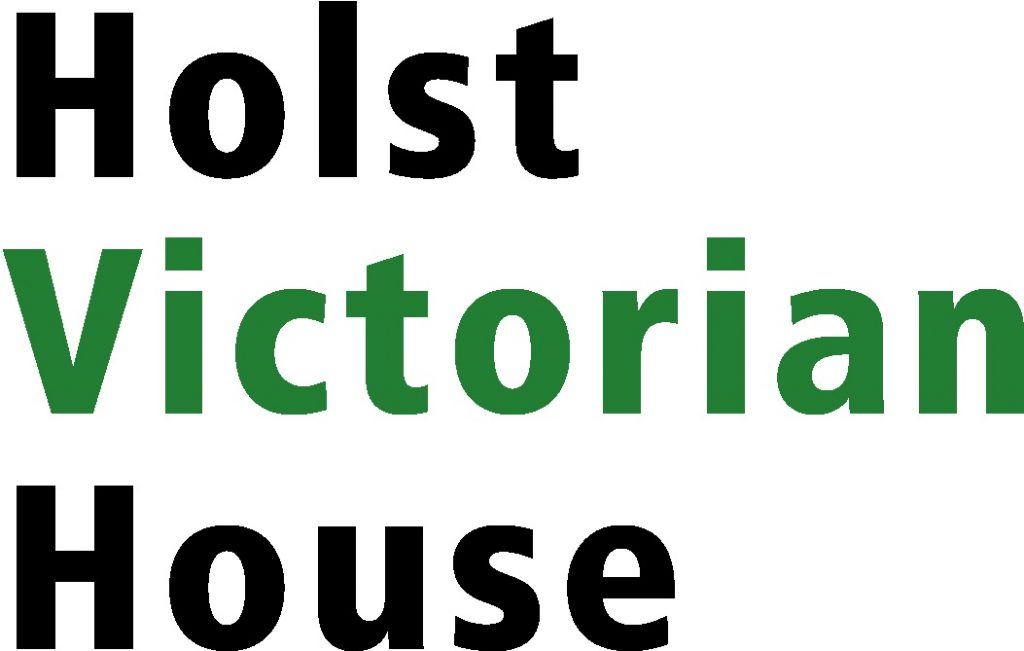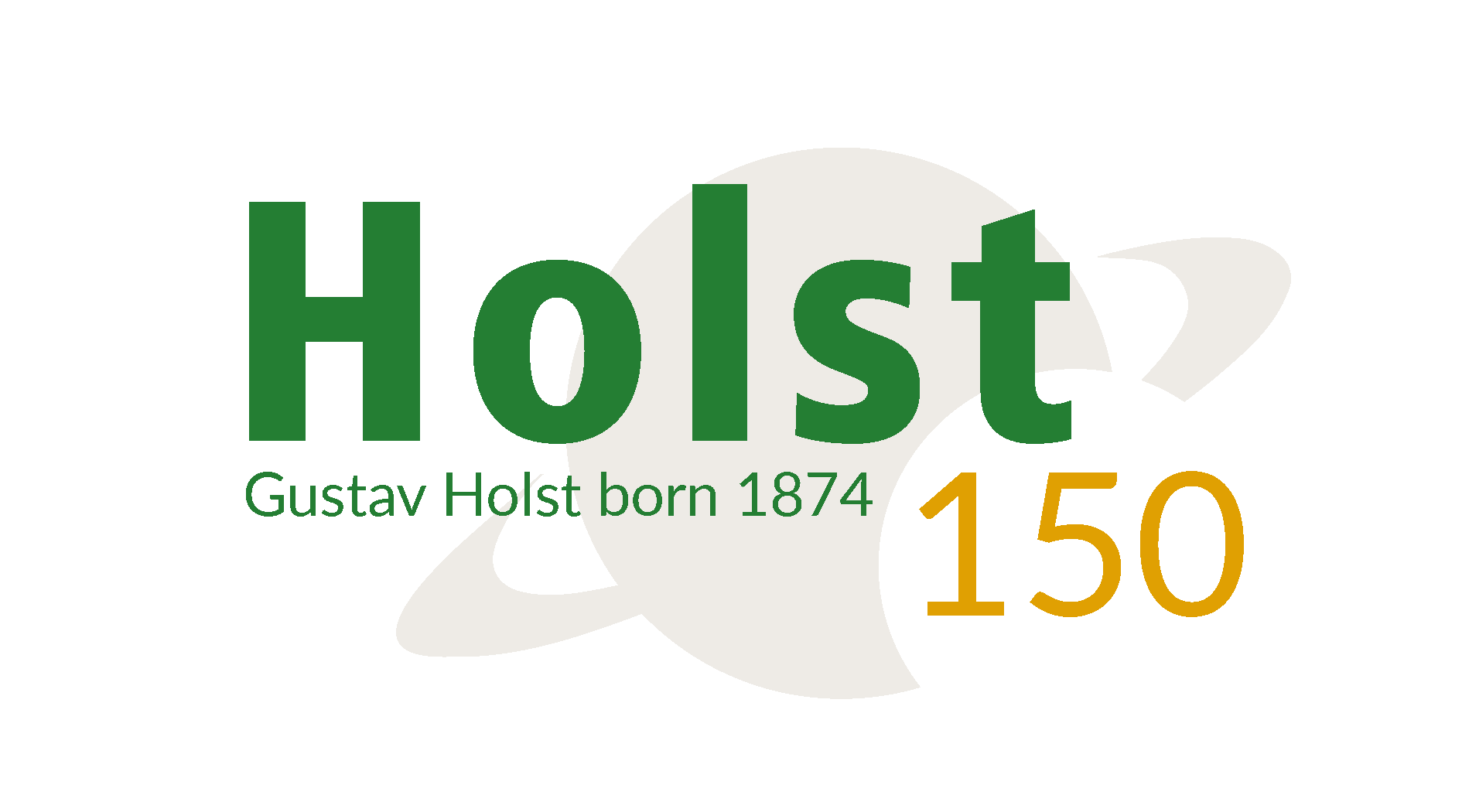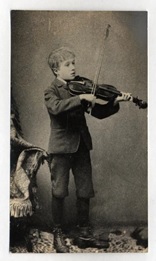
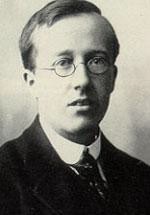
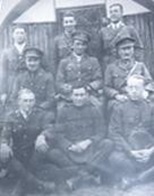
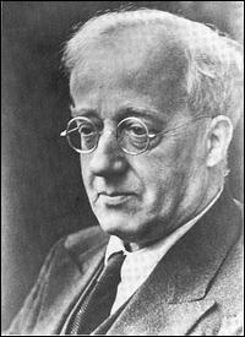
A son of Cheltenham
Gustav Holst was born at 4 Pittville Terrace (now 4 Clarence Road) Cheltenham, on 21st September 1874. His father was Adolphus von Holst, a piano teacher, and his mother was Clara von Holst (née Lediard).
Gustav’s mother died in 1882 when he was only eight years old. Gustav and his little brother Emil were then looked after by their aunt Nina who, along with his father, taught him how to play the piano and compose music. He attended Cheltenham Grammar School (now Pate’s Grammar School). And when he was twenty one years old he held his first concert at the Montpellier Rotunda (now The Ivy).
A teacher and composer
Gustav then moved to London to study music composition at the Royal College of Music. In 1905 he became a music teacher at St Paul’s Girls’ School in London.
Whilst working as a music teacher, Holst wrote many pieces of music. His most famous work is ‘The Planets Suite’, written between 1914 and 1917. This consists of seven very different pieces of music, each representing the different ‘personalities’ of the planets.
Gustav Holst and the First World War
Although he was deemed unfit for military service in the First World War, in 1918 Gustav joined the YMCA Education Department, helping to organise music activities in military training camps, hospitals and prisoner of war camps. In order to avoid suspicion over his nationality, he agreed to drop the ‘von’ from his surname, although he discovered that the family had never been entitled to it in the first place.
Later years
In 1927, Gustav Holst was honoured by his home town of Cheltenham with a two hour concert of his work, including The Planets, held in the Town Hall. Amongst the crowd were old school friends, violinists who had played with his father Adolphus and some very old ladies who had been taught music by his grandfather Gustavus.
Gustav continued to teach and write music, although his health deteriorated in the last years of his life. He died in 1934 at the age of 59, and his ashes were interred at Chichester Cathedral.
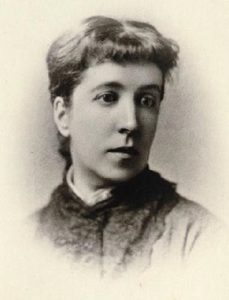 Clara Cox was the daughter of Mary Croft Whatley and Samuel Lediard of Cirencester. As the daughter of a solicitor, Clara would have grown up in relatively comfortable surroundings. She was taught to sing and play the piano. She was a gifted musician, playing and teaching the piano at Cranham parish church and giving piano recitals in Cheltenham.
Clara Cox was the daughter of Mary Croft Whatley and Samuel Lediard of Cirencester. As the daughter of a solicitor, Clara would have grown up in relatively comfortable surroundings. She was taught to sing and play the piano. She was a gifted musician, playing and teaching the piano at Cranham parish church and giving piano recitals in Cheltenham.
She attended Cheltenham Ladies College, where she met and married her piano teacher, Adolphus von Holst. They had two children, Gustav and Emil, who were both born at 4 Pittville Terrace. Clara managed the household whilst Adolphus travelled around Cheltenham giving piano lessons. However, Clara increasingly suffered from her ‘nerves’ during her marriage, forcing Adolphus to carry out his piano practice on a silent keyboard. Clara died of heart disease following a stillbirth.
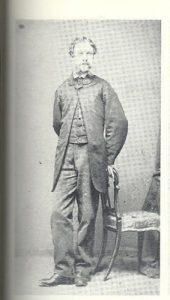 Adolphus von Holst was born in 1846, the son of Gustavus von Holst and Honoria Gooderich of Cheltenham. As the son of a piano teacher and composer, Adolphus was taught how to play the piano from a young age. When he was an adult, he began teaching piano to the sons and daughters of the wealthy in Cheltenham, as part of their education. Adolphus was also an organist and conductor and played at both St. Paul’s and All Saints churches. He fell in love with Clara Cox Lediard, one of his pupils.
Adolphus von Holst was born in 1846, the son of Gustavus von Holst and Honoria Gooderich of Cheltenham. As the son of a piano teacher and composer, Adolphus was taught how to play the piano from a young age. When he was an adult, he began teaching piano to the sons and daughters of the wealthy in Cheltenham, as part of their education. Adolphus was also an organist and conductor and played at both St. Paul’s and All Saints churches. He fell in love with Clara Cox Lediard, one of his pupils.
After Clara’s death, Adolphus moved his family out of 4 Pittville Terrace and brought his sister Nina into his household to look after his children whilst he continued to work as a piano teacher. A couple of years later, Adolphus remarried and his sister no longer needed to live with him. Adolphus struggled with a drinking problem for much of his life and died in 1901 at the age of 55 after a drinking session at what is now Montpellier Wine Bar.
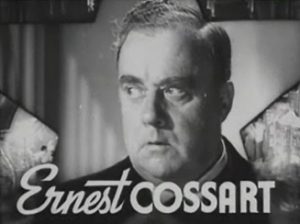 Emil von Holst was born at 4 Pittville Terrace in 1876. His parents were Adolphus von Holst and Clara Cox Lediard. He was the younger brother of Gustav von Holst.
Emil von Holst was born at 4 Pittville Terrace in 1876. His parents were Adolphus von Holst and Clara Cox Lediard. He was the younger brother of Gustav von Holst.
Emil enjoyed playing practical jokes on his older brother and would sometimes move the time on the clock back during Gustav’s hated violin practice, forcing him to practice for longer.
Emil attended Cheltenham Grammar School (now Pates Grammar School) and then went to work as a clerk in a wine-maker’s office before becoming an actor, at which point he adapted the stage name ‘Ernest Cossart’.
Emil acted on stage in Britain before moving to the US in 1908 and acting in shows on Broadway. He then moved into acting in Hollywood movies in the 1930s. He died in New York in 1951.
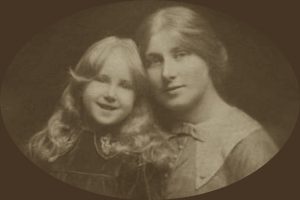
Isobel Harrison – Gustav Holst’s future wife – was born at 1 Myddleton Terrace, Finsbury Road, Wood Green in North London on 26th March 1876. Her parents were Ralph Augustus Harrison, at that time a Merchant’s Clerk, and Jessie Elizabeth Harrison née Davis. Isobel and Gustav met at the Hammersmith Socialist Society in the late 1890s, where they both attended the Society’s meetings and Gustav conducted the Socialist Choir, which Isobel joined as a young soprano.
Isobel and Gustav married at Fulham Register Office on 22nd June 1901, starting their married life in two rented rooms in Shepherd’s Bush, with Isobel doing dressmaking to help make ends meet. On 12 April 1907 their only child, Imogen, was born.
During World War One Isobel joined other independent-spirited women in volunteering to work for the Green Cross as a part-time driver in the Women’s Reserve Ambulance.
In 1923 she accompanied Gustav on his first two-month visit to America. Although from 1914 onwards Isobel spent much of her time in Thaxted, Essex, whilst Gustav was working or travelling elsewhere, when he died she was at his bedside.
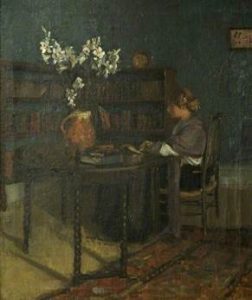
Isobel had a flair for home making and decorating, and embraced country life. She joined the English Folk Dance Society, Essex Archaeological Society and Essex Agricultural Society and supported the Women’s Institute as well as Thaxted church.
She died in Stow Lodge Hospital, Stowmarket, on 16th April 1969. Isobel has no grave, but her obituary in The Times on 19th April 1969 recorded that she had been “kind and generous”, and brought in to Gustav’s life “grace and ease and comfort”.

